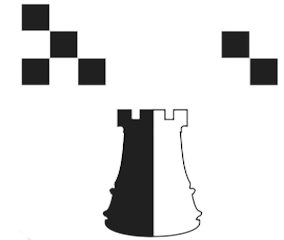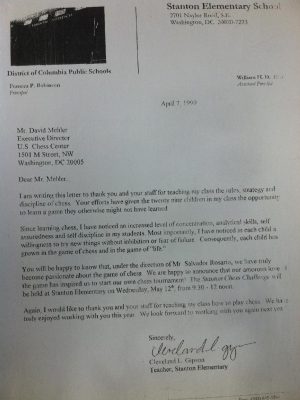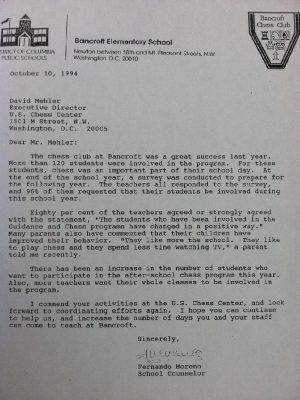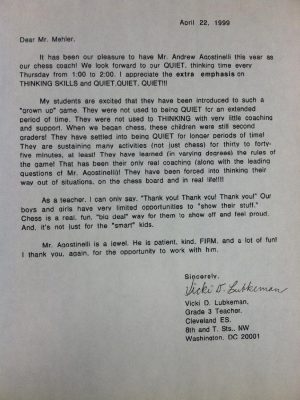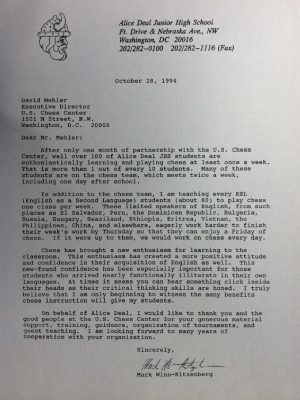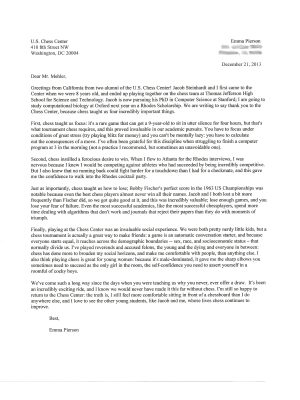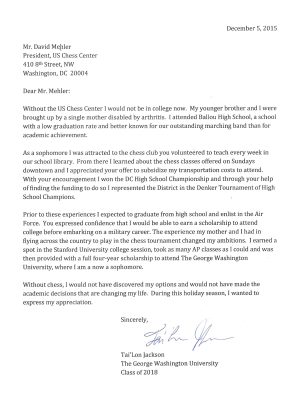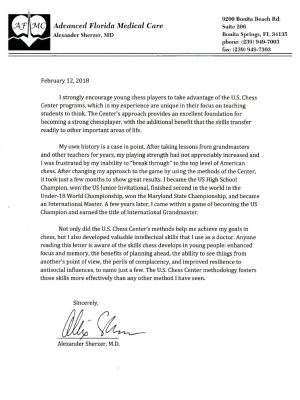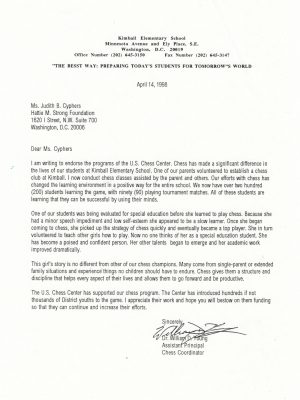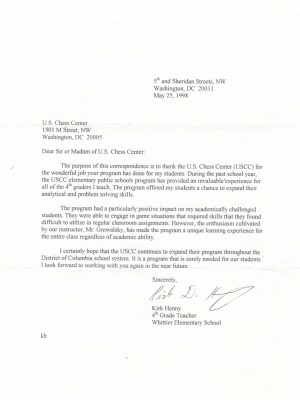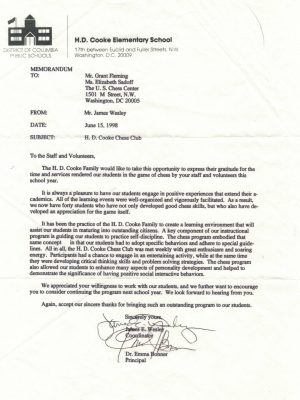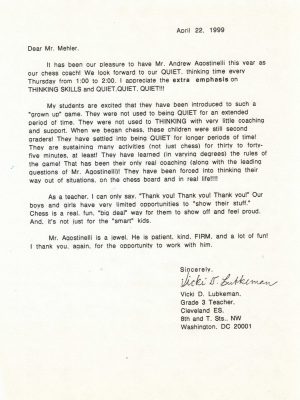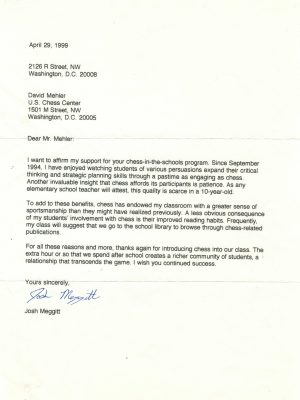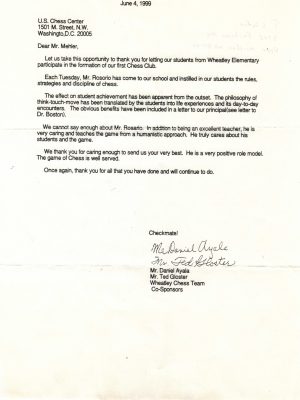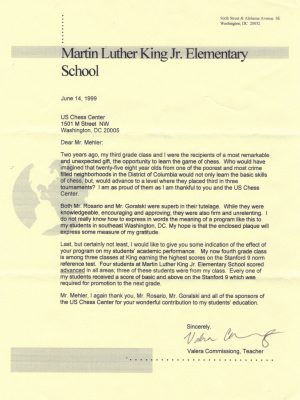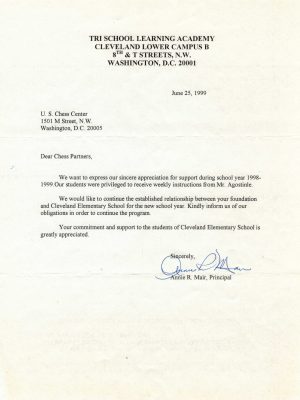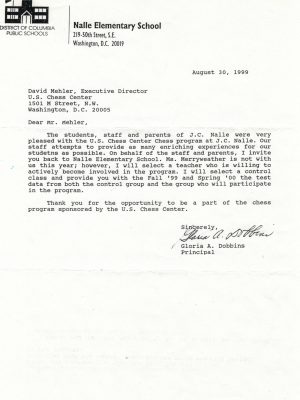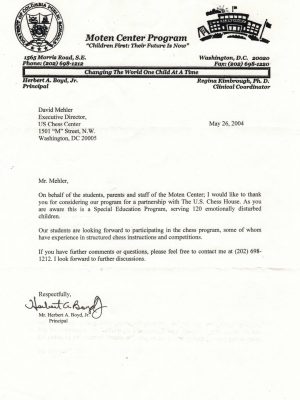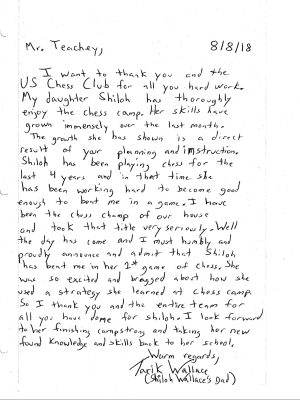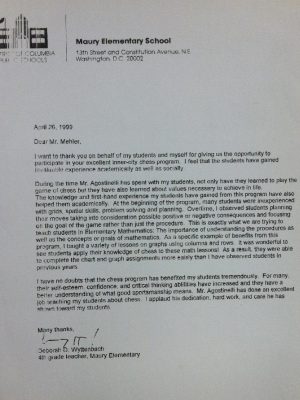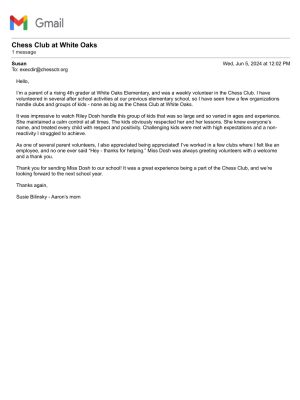U.S. Chess Center
We teach kids to think; they learn a skill for life!
The U.S. Chess Center promotes self-confidence, social skills, and academic success for all.
The U.S. Chess Center’s teaching methods are fun and effective. Our nationally certified chess teachers help students become creative, enjoy learning, and pursue their passions. We emphasize problem-solving over memorization; as our students learn to think independently, they achieve success and develop well-earned senses of accomplishment.
Not only have our students become champions in chess (winning more than 50 state and national championship titles), they also have used chess to accomplish their academic and life goals. Two of our students earned Rhodes Scholarships and hundreds earned academic scholarships. See where our students have gone to college.
Since 1992, we have taught chess to about 40,000 students and at over 150 schools across the National Capital Region.
Chess improves...
Critical Thinking
Chess teaches students that there are consequences for their actions and that making good decisions based on planning and reasoning has happier outcomes than being impulsive and making poor decisions. Chess teaches kids how to think – to reject facile solutions and deceptions in favor of careful planning and analysis needed to a reach a goal.
Memory
Planning Ahead
Chess teaches students that there are consequences for their actions and that making good decisions based on planning and reasoning has happier outcomes than being impulsive and making poor decisions.
Problem solving
Pattern recognition
Spatial awareness
Focus and Concentration
Creativity
Perspective & Self-awareness
Chess teaches you empathy and to see things from another’s perspective; to ascertain your opponent’s strategy and imagine their moves. Chess also teaches you to be aware of yourself.
Patience & Impulse Control
Chess teaches “impatient kids the value of hard work and delayed gratification” (Drummond, 2000) and allows them to channel aggression in a socially acceptable way (Vail, 1995). At one New York City school, suspensions and altercations decreased by at least 60% after a chess program was established. (Palm, 1990).
Chess allows students from varied socio-economic backgrounds to compete with each other on an equal footing. Any child who understands the basics of chess belongs in the group. Kids become friends as they analyze games together. With chess in common, kids learn to interact with others who are different, dispelling stereotypes and creating a stronger sense of community.
Chess is not an academic subject, yet chess players become better students. Chess is an amazing tool in the hands of educators as it produces students more ready to pay attention and learn. Chess is part of the elementary school curriculum in nearly 30 countries.
On December 17, 1992, New Jersey Governor Jim Florio signed into law a bill to establish chess instruction in public elementary schools. The bill states, “In countries where chess is offered widely in schools, students exhibit excellence in the ability to recognize complex patterns and consequently excel in math and science….”
Impact of Chess Training on Academic Performance of Rural Indian School Children
Winning and losing with grace and dignity
The only people who never lose at chess are those who never play.
Perseverance
Making the best of your situation
Avoiding complacency
Striving to improve your position
... and it's FUN!
Read letters from teachers, parents, and former students explaining how chess taught invaluable skills to succeed in school and in life.
“The students were solving hundreds of related problems while playing a game of chess, which reinforces the skills of focus and concentration, planning ahead, and critical thinking.”
-Dr. Carey M. Wright, Chief Academic Officer, D.C. Public Schools
“Not only did the U.S. Chess Center’s methods help me achieve my goals in chess, but I also developed valuable intellectual skills that I use as a doctor.”
-Dr. Alex Sherzer, Former Student & International Grandmaster (2018)
“Chess taught us focus… instilled a ferocious desire to win… taught us how to lose… and provided us an invaluable social experience…”
-Emma Pierson, Former Student & Rhodes Scholar (2013)
